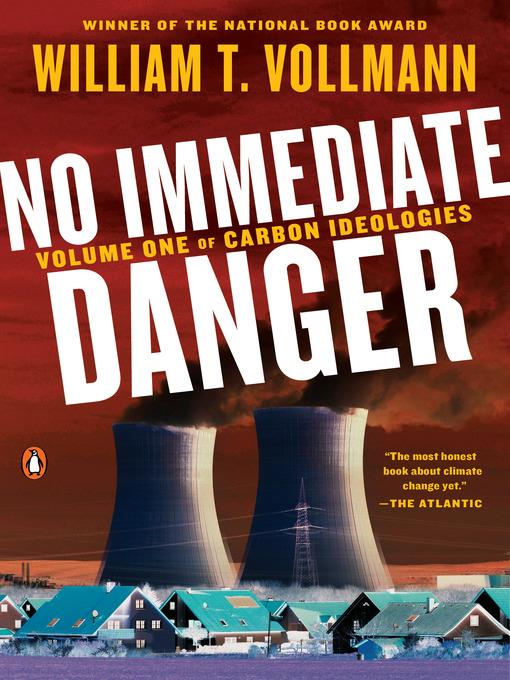
No Immediate Danger
Volume One of Carbon Ideologies
کتاب های مرتبط
- اطلاعات
- نقد و بررسی
- دیدگاه کاربران
نقد و بررسی

December 1, 2017
National Book Award winner for his novel Europe Central, Vollmann also writes politically engaged nonfiction. For this first volume in a new work on global warming, he risked traveling to the contaminated, unearthly no-go zones of Fukushima, Japan. Up next: coal mining and oil and natural gas production.
Copyright 2017 Library Journal, LLC Used with permission.

February 1, 2018
Vollmann (The Dying Grass, 2015, etc.) apologizes to the future that we've ruined, charting how our choices of energy sources made the planet scarcely inhabitable."Back when I lived," writes the author early on, "some of us believed that heavily polluting coal could somehow lift people out of poverty without impoverishing us in any more fundamental way. We believed that because it was convenient to believe it. So we kept the lights on." The italics are his, but in any event, it's a feint: we won't get deeply into coal until the second volume of this Carbon Ideologies series. The first is heavy going enough. Famously loquacious, Vollmann writes, without apparent irony, that his "little book" is full of questions and not solutions, true enough save that the little book stretches out over more than 600 pages and embraces a couple of dissertations' worth of data and research notes. In the main, the author's focus is on nuclear power, for, as he also notes early on, "the future for which I write will most likely also be a more radioactive time," not just because nuclear power may be the only way out of fossil fuel dependency--renewables make more sense, but they apparently don't offer enough bang for the buck for the corporate mindset--but also because, given the likelihood of accidents, the world is likely to have plenty of loose isotopes rolling around. Vollmann chronicles his travels to the site of the Fukushima reactor disaster, asking questions that journalists have not: "What color was the tsunami?" "Is it safe here?" It will come as no comfort to know that Fukushima won't, in fact, be safe for another 500 years--though, counsels one decontamination specialist, it may take only 300 years. That there are two or more answers to the question is emblematic, for every matter that the author raises leads onto many others, yielding a dense but--as always, with Vollmann--rewarding, impeccably researched narrative.Vollmann promises a second volume to come--and perhaps more beyond that. Only the irradiated future will tell.
COPYRIGHT(2018) Kirkus Reviews, ALL RIGHTS RESERVED.

February 5, 2018
Fossil fuels and nuclear power pose equally apocalyptic threats, according to this fact-strewn, muddled opening volume of a massive two-volume cri de coeur on energy. Addressing an imagined reader of the future, when climate change has made the earth a scorched wasteland, novelist and journalist Vollmann (Uncentering the Earth) opens with a guilt-stricken primer on mankind’s heedless production of greenhouse gases—then proceeds to attack nuclear power, one of the largest sources of low-carbon energy. Much of the book covers his travels in Japan, where he roamed the environs of the Fukushima nuclear accident of 2011 taking readings with a radiation meter, talking to locals, and shuddering at desolate vistas of evacuated towns—the fruit, he contends, of a callous “nuclear ideology” that saddles humanity with poisoned landscapes. Vollmann’s critique doesn’t quite make a coherent case that Fukushima’s spew will have significant health effects (the scientific consensus says otherwise); instead he veers between sarcastic jibes—“unlike its three main rival fuels, nuclear could be fun!”—and alarmism about “gamma rays stabbing through me.” Nuclear power and energy policy deserve a more thoughtful, less biased exploration than Vollmann gives them. Photos.

























دیدگاه کاربران